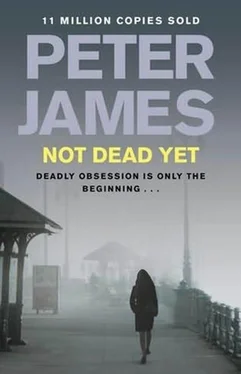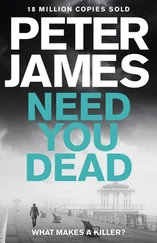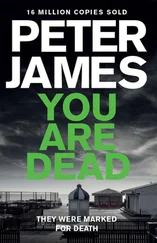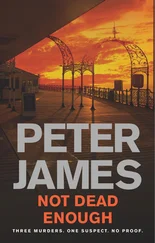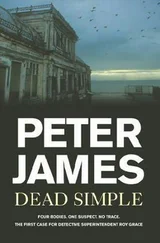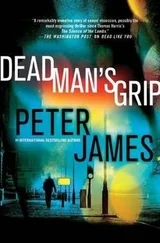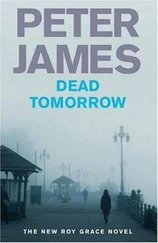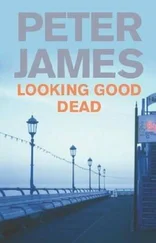There was tittering in the room. Roy Grace did his best to keep a straight face, but after some moments he allowed himself a grin.
In all the murder enquiries he had attended, and more recently had run, he could not remember a single one where there had been less information about the victim or the suspected perpetrator.
In two hours’ time he had to attend a press conference with Glenn. If they put over their messages correctly, it could lead to a crucial witness either phoning the police directly or the Crimestoppers line anonymously. The enormity of his responsibility never escaped him. Myles Royce was his mother’s only child. He was her life. For over thirty years after leaving home, he went to see her every week, and phoned her every Sunday evening at seven, without fail. Now he hadn’t phoned for almost six months. And he wouldn’t be phoning ever again.
What had he done to deserve ending up dead, and with such appalling lack of dignity? Who had done this to him – and why? Was the motive sexual? Jealousy? Robbery? Homophobia? A random psychotic attack? Revenge? An argument that turned into a fight?
He looked at his team. ‘Which of you are Gaia fans?’
Several hands shot up. He looked at Emma Reeves, who seemed the keenest. ‘Am I right that Gaia includes a bit of S &M in her work, yes?’
‘Yes, chief – but only in a fun way in one of her acts, and on one of her album covers.’
‘Are we missing something very obvious here? Did she ever write a song about dismemberment? Or have some sick art about it that someone might have copied?’
‘I know everything she’s done, sir,’ Emma Reeves said. ‘That makes me a bit sad, doesn’t it?’
Grace smiled. ‘Not at all.’
‘But there’s nothing I can think of in her work that would send some sicko off to dismember someone.’
*
After the briefing ended, Grace returned to his office and made a new entry into his Policy Book.
Homophobic murder?
Blackmail of a gay lover?
Criminal involvement? Witnessed something? Drugs deal at a gay cruising site?
His phone rang. He looked down at the display and did not recognize the number. He stepped out into the corridor as he answered it.
The voice of the caller was low and furtive. ‘Detective Superintendent Grace?’
Grace didn’t need to ask who was calling. He recognized the voice of the recidivist and informer, Darren Spicer. ‘Yes, how can I help you?’
‘Got some more information for you. You can have this for free.’
‘That’s very generous.’
‘Yeah. Thought you’d like to know. That deal I was offered, what we discussed?’
‘Uh huh.’
‘Your friend’s just come back to me and doubled it, for me to do that job.’
Drayton Wheeler lay, curled up on the floor, listening to Mozart’s Figaro overture on his iPod earphones. It was Mozart’s music which had sustained him through all the shit in his life. Mozart lifted him to the heavens. When the time finally came, he didn’t want some fucking priest holding his hand, he wanted to be alone, listening to this.
He looked at his watch, munching on the cheese sandwich he had selected from his rations. Midnight. It would be safe to move into position now – he had figured out the security guards’ rota in here during the small hours.
He finished eating, switched off the iPod and drank some water. He removed the iron tyre lever from his rucksack, and scooped everything else back into it apart from the torch, then stood up and hauled it on to his shoulders, shaking the cramp from his legs. Then he relieved himself in a corner.
When he had finished, he slowly and cautiously pushed open the heavy door and stepped out, looking in both directions. Just darkness. No one there. Holding the tyre lever in his right hand and the torch, switched on, in his left, he made his way along the passage, passing old pipework, a modern red firehose reel, and three rickety old antique chairs with broken wicker seats. He felt nervous. So close now. He had to succeed. Had to . He switched the torch off, held his breath then, knowing there would be security guards prowling around above him, inched his way up the steps in the darkness until he reached the half-gate.
Footsteps.
Shit.
He crouched, heart pounding, pulse tugging at the base of his wrist as if it were a small creature trying to get out. He gripped the tyre lever tightly.
Rubber-soled shoes clumping along. The sound of jangling keys. Then whistling ‘The Harry Lime Theme’. The whistle of someone who was nervous. Whistling badly, missing several of the notes. Was the guard nervous of this place at night?
Just don’t come down here.
To his relief the footsteps faded into the distance and were gone. But he stayed crouched for several more seconds, listening. A walk of twenty feet, not covered by any sensor, would take him to the door which opened on to the stairs up to the long-deserted apartment beneath the dome. He slipped the bolt, pulled open the gate and stepped out into the hallway, holding his breath. Listening intently. Total silence. He pulled the gate shut and slid the bolt back into place, flicked on the torch for an instant to get his bearings and then off again. He walked on tiptoe, passing a sign which pointed to TOILETS, pulled open the door, stepped inside and pulled it shut behind him.
Then, switching on the torch and guided by the beam, he climbed up the long, steep spiral staircase with the rickety banisters, pausing for breath halfway up. Shadows jumped around him. This place was probably full of ghosts. So what, he’d be one soon, too. The dead had never bothered him. Ghosts weren’t scumbags like some of the living.
He reached the top and entered the old, abandoned apartment beneath the dome. A door lay against a wall. There were dust sheets over uneven, angular shapes. Horrible mottled wallpaper, dusty oval leaded-light windows with views out across the street lights, shadows and orange permaglow of the city at night, and the vast black expanse of the sea. A mouse – or a rat – scampered away, feet scratching on the bare boards. The air smelled dusty and dank.
He felt tired. The coffee in his flask had long gone cold. He would have liked to lie down on the floor and sleep, but he didn’t dare. It would be dawn in a few hours. He needed to get into place under the cover of darkness. He stepped carefully across the circular room, passing the trapdoor secured by two bolts, with the wording on it, DANGER – STEEP DROP BELOW. DO NOT STAND ON DOOR, accompanied by the image, in purple, of a falling man. He kept the beam of his torch low, just in case anyone was looking up in this direction, and walked through a doorway into what had once been another bedroom, with everything in here also shrouded in dust sheets. In front of him was a wall, covered in graffiti. One in swirly writing said, J Cook, 1920. There was a drawing of an owl. Another drawing of a shield. Another read, RB 1906.
To the left was a small door, barely bigger than a hatch. He knelt, slid the bolts and pushed it open. The cool, blustery night air with its fresh, salty tang, engulfed him, and he breathed it in, greedily, gulping it into his lungs, a relief from the stale air inside. He removed his rucksack and pushed it through, then eased himself out, hauled himself to his feet, and carefully pushed the door shut.
He was standing on a narrow, steel platform with a handrail, with the wind tugging at him. A long way below, directly in front of him, was the dark area of the Pavilion grounds, and the shadows of the motorhomes of the stars and the production trucks. In the glow of the street lighting, and through the swaying branches of the trees, he could see the Theatre Royal and the restaurants, shops and offices of New Road, and beyond, the dark, uneven rooftops of sleeping Brighton.
Читать дальше
